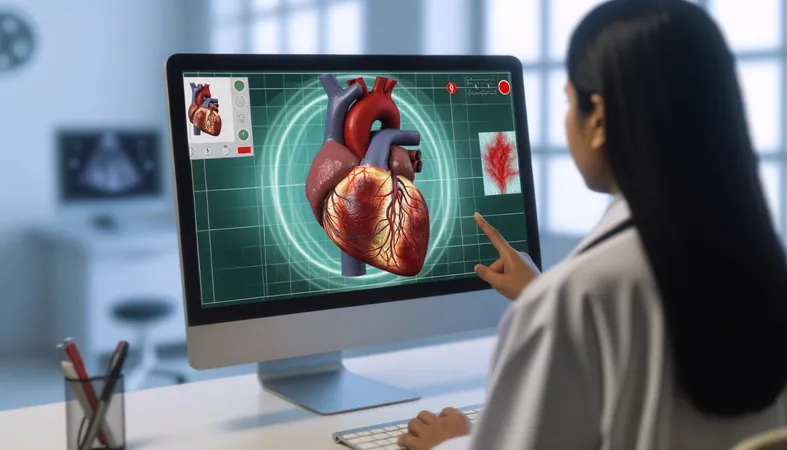
Revolutionary AI Tool Predicts Sudden Cardiac Death with Unprecedented Accuracy
2025-07-04
Author: Wei Ling
A Game-Changer for Heart Health
Researchers at Johns Hopkins University have unveiled a groundbreaking AI tool that dramatically improves the prediction of sudden cardiac death in patients with hypertrophic cardiomyopathy (HCM). This innovative model, called MAARS (Multimodal AI for Ventricular Arrhythmia Risk Stratification), has outperformed traditional clinical methods.
How MAARS Works
The MAARS system harnesses the power of advanced technology by analyzing a combination of medical records, cardiac MRI scans, and imaging reports. This multifaceted approach allows for a far more accurate assessment of individual risk levels than existing tools.
Stunning Results from Trials
In initial trials, MAARS achieved an impressive area under the curve (AUC) score of 0.89 in internal testing and 0.81 during external validation, both of which significantly surpass the scores of traditional risk calculators endorsed by American and European health guidelines.
Why MAARS Is a Leap Forward
The extraordinary performance of MAARS is credited to its capability to interpret complex cardiac MRI data — especially scans enhanced with gadolinium — which often go unnoticed in conventional analyses.
Potential to Personalize Patient Care
This cutting-edge AI tool has the potential not only to personalize treatment plans but also to reduce unnecessary defibrillator installations, offering patients safer options. However, the team behind MAARS urges caution; the current study utilized limited patient groups from Johns Hopkins and North Carolina’s Sanger Heart & Vascular Institute.
Challenges Ahead
Despite its promise, the complex datasets MAARS relies on could make it challenging for widespread implementation in clinical settings. As researchers navigate these hurdles, they remain optimistic about the potential shift MAARS could bring to the management of HCM—the most prevalent hereditary heart condition.
A New Hope for Patients
By uncovering hidden patterns within imaging data and patient histories, MAARS presents a beacon of hope, particularly for younger patients still at significant risk. This revolutionary advancement could ultimately lead to more effective safeguarding measures for those vulnerable to sudden cardiac events.


 Brasil (PT)
Brasil (PT)
 Canada (EN)
Canada (EN)
 Chile (ES)
Chile (ES)
 Česko (CS)
Česko (CS)
 대한민국 (KO)
대한민국 (KO)
 España (ES)
España (ES)
 France (FR)
France (FR)
 Hong Kong (EN)
Hong Kong (EN)
 Italia (IT)
Italia (IT)
 日本 (JA)
日本 (JA)
 Magyarország (HU)
Magyarország (HU)
 Norge (NO)
Norge (NO)
 Polska (PL)
Polska (PL)
 Schweiz (DE)
Schweiz (DE)
 Singapore (EN)
Singapore (EN)
 Sverige (SV)
Sverige (SV)
 Suomi (FI)
Suomi (FI)
 Türkiye (TR)
Türkiye (TR)
 الإمارات العربية المتحدة (AR)
الإمارات العربية المتحدة (AR)